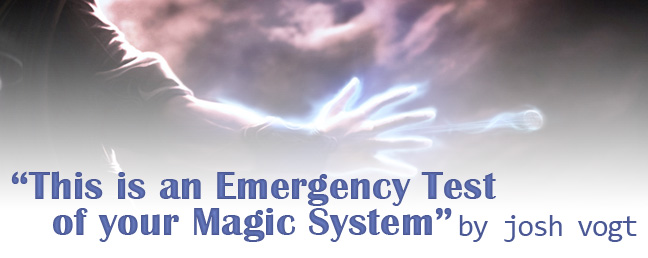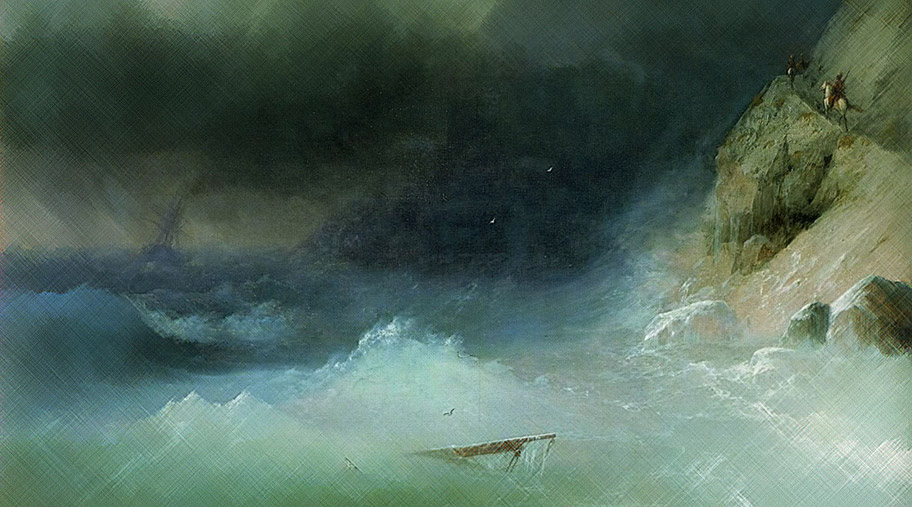Why did Shakespeare write fantasies? Why not mainstream topics, such as histories and romantic comedies?
Before we examine this question, let us examine a few others first: Fantasies are fun! Why doesn’t everybody read them? What is mainstream? Why is a story about ordinary life considered mainstream, while an equally charming fantasy is relegated to the back of the bookstore?
I had a bit of insight into this many years ago, when I first became a writer. Through a mutual friend, I connected with a fellow writer who was hard at work on a mystery. I was writing a fantasy with a great deal of mystery elements, so this sounded like a great meeting of minds. We exchanged manuscripts and then met for coffee.
How could a staff be magical? It caused a person to teleport? How does that work? The reader isn’t going to be able to follow this without an explanation.
I pointed out a few inconsistencies in her otherwise well-appointed story. She thanked me. Then, frowning over her drink, she pointed to my manuscript and said, “In this scene here, your character uses a ‘magic staff?’ You don’t explain what a ‘magic staff’ is. How could a staff be magical? It caused a person to teleport? How does that work? The reader isn’t going to be able to follow this without an explanation.”
In that moment, I learned a tremendous amount about writing and human nature.
I learned that my novel would never be a mainstream novel, that people who lived their lives only concerned about daily life wanted to read about the issues they encountered in said daily life, and that the ideas that we fantasy and science fiction readers take for granted are extraordinary and intimidating to the ordinary reader. I was writing a novel for fantasy fans. People who already understood what a magic item was. Such people did not need explanations about the basics. They were already familiar with these concepts.
Mainstream readers are not. Read More »

Creating a new magic system isn’t all that hard. Do I hear a few dissenters in the audience? For the sake of the next exercise, let’s assume I do. Time to play a quick round of Magic Mad-libs!
Fill in the blanks:
“In a(n) adjective world populated by noun, practitioners known as made-up-word can call upon energy source to fuel a form of noun magic.”
What’d you come up with? In a forested world populated by squirrels, practitioners known as fuzzummoners can call upon mystical oak trees to fuel a form of acorn magic? Me too! Weird.
Once a basic concept is pinned down, it’s still not difficult to flesh out the system. There are so many types of magic systems swarming the shelves these days, they’ve started to lump into familiar categories. Here are a few common approaches:
- Beakers full of fairy dust – This is magic as science. The fuzzummoners exist within a universe that has an extra level or two of physics, with established rules that govern their acorn spell-casting. (Think pretty much any book by Brandon Sanderson.) Or the fuzzummoners have stumbled across mysterious, ancient—possibly alien—doohickeys that are so far beyond their comprehension it might as well be magic.
- The mythology wood-chipper – Fuzzummoners are just one supernatural faction alongside Norse gods, dragons, trolls, vampires, and whatever else gets thrown into the mix for variety’s sake. (Jim Butcher’s Dresden Files series is a great example.) Bit of a magical free-for-all where anything goes (Also look at T.A. Pratt’s Marla Mason series).
- Is that a D20 in your pocket? –The fuzzummoners magic originates from a roleplaying world with game mechanics complicated enough to boggle Jeopardy’s Watson. Whether a tabletop or video game, the gameplay came first, the stories came later. (Look to the Pathfinders Tales series as a current example, plus plenty of other media tie-ins.)
If creating the magic system isn’t hard, what’s the difficult part then? Read More »


